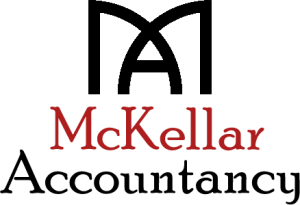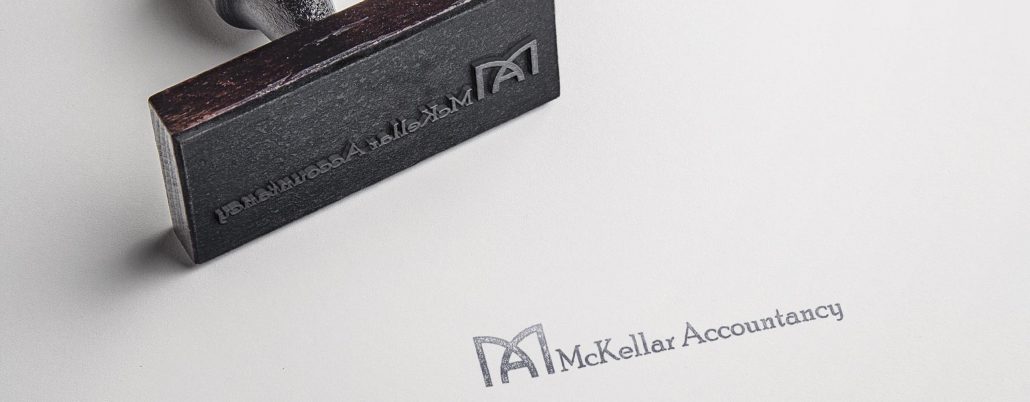In this month’s Enews we consider changes to the plastic bag tax, pension scams and the latest advisory fuel rates. With the latest figures on the success of the Eat Out to Help Out scheme, self assessment deadlines, the latest guidance for employers, the launch of the Kickstart Scheme and the Self Employed Income Support Scheme Grants there is lots to consider.
Article Index
- Plastic bag tax charge to be doubled and extended to all retailers
- More than £30 million lost to pension scams
- Advisory fuel rates for company cars
- Eat Out to Help Out – over 64 million meals
- Self assessment deadlines
- HMRC latest guidance for employers
- Kickstart Scheme opens for applications
- Self Employment Income Support Scheme Grants
Plastic bag tax charge to be doubled and extended to all retailers
The fee for plastic shopping bags in England will be doubled to 10 pence and extended to all shops from April 2021.
Small retailers, those employing 250 people or fewer, will no longer be exempt, the Department for Environment, Food and Rural Affairs (Defra) said.
According to Defra, since the charge was first introduced in 2015 it has successfully prevented billions of plastic bags being sold and ending up in the ocean and environment.
Government data shows the current levy, which stands at 5 pence per bag and applies to any retailer employing 250 or more people, has led to a 95% cut in plastic bag sales in major supermarkets since 2015.
Commenting on the announcement, Environment Secretary George Eustice, said:
‘We have all seen the devastating impact plastic bags have on the oceans and on precious marine wildlife, which is why we are taking bold and ambitious action to tackle this issue head on.
‘The UK is already a world-leader in this global effort, and our carrier bag charge has been hugely successful in taking billions of harmful plastic bags out of circulation. But we want to go further by extending this to all retailers so we can continue to cut unnecessary waste and build back greener.’
Internet link: GOV.UK
More than £30 million lost to pension scams
Over £30 million has been lost to pension scams since 2017, according to the Financial Conduct Authority (FCA) and The Pensions Regulator (TPR).
A total of £30,857,329 in pension savings has been lost to scammers since 2017, data published by the FCA and the TPR revealed. Reported losses ranged from under £1,000 to as much as £500,000. The average victim was a man in his 50s, the FCA and the TPR found.
65% of pension savers said they felt confident they could spot a scam. However, four in ten would put themselves at risk unknowingly by engaging with a common scam tactic, such as being told it’s a time-sensitive offer.
The FCA and the TPR have advised savers not to be pressured into making any decisions about their pensions, and to reject unexpected pension offers, whether these are made online, via social media or over the phone.
Mark Steward, Executive Director of Enforcement and Market Oversight at the FCA, said:
‘During these uncertain times, it is more important than ever to defend your lifetime savings from scammers.
‘Fraudsters will seek out every opportunity to exploit innocent people, no matter how much or how little you have saved.’
Internet link: FCA news
Advisory fuel rates for company cars
New company car advisory fuel rates have been published which take effect from 1 September 2020. The rates only apply to employees using a company car. The guidance states:
‘You can use the previous rates for up to one month from the date the new rates apply.’
The advisory fuel rates for journeys undertaken on or after 1 September 2020 are:
| Engine size | Petrol |
| 1400cc or less | 10p |
| 1401cc – 2000cc | 12p |
| Over 2000cc | 17p |
| Engine size | LPG |
| 1400cc or less | 7p |
| 1401cc – 2000cc | 8p |
| Over 2000cc | 12p |
| Engine size | Diesel |
| 1600cc or less | 8p |
| 1601cc – 2000cc | 10p |
| Over 2000cc | 12p |
HMRC guidance states that the rates only apply when you either:
- reimburse employees for business travel in their company cars or
- require employees to repay the cost of fuel used for private travel.
You must not use these rates in any other circumstances.
The Advisory Electricity Rate for fully electric cars is 4 pence per mile. Electricity is not a fuel for car fuel benefit purposes.
If you would like to discuss your car policy, please contact us.
Internet link: GOV.UK AFR
Eat Out to Help Out – over 64 million meals
The government has announced that more than 64 million meals were enjoyed by diners across the country during the government’s Eat Out to Help Out discount scheme. The scheme closed on 31 August 2020.
Government figures show that restaurants had claimed for more than 64 million discounted meals as Eat Out to Help Out entered its fourth week.
This continues the upward trend in the scheme’s popularity, with 10.5 million meals claimed for in the first week, growing to a total of 35 million meals in the second.
The upward trend in meals claimed for shows that millions continued to flock to eat out to support 1.8 million jobs in the hospitality sector, which has been hit hard by coronavirus (COVID-19). The government has confirmed that 87,000 claims have been made by restaurants taking part in the scheme.
Data from OpenTable shows that during Eat Out to Help Out’s third week the number of customers at UK restaurants was 61% higher than the same days last year on average for Monday to Wednesday. The average level across Monday to Wednesday in the first and second week were 12% and 41% respectively. The data also shows that the number of customers at UK restaurants was up 17% compared to the same week in 2019.
Chancellor of the Exchequer Rishi Sunak said:
‘Today’s figures continue to show that Brits are backing hospitality – with more than 64 million meals discounted so far, that’s equivalent to nearly every person in the country dining out to protect jobs.
‘This scheme has reminded us how much we love to dine out, and in doing so, how this is helping to protect the jobs of nearly two million people who work in hospitality.’
Internet links: GOV.UK news HMRC guidance
Self assessment deadlines
Two self assessment deadlines are approaching:
- 5th October 2020
For those individuals who have not previously completed a tax return but need to report a liability for 2019/20.
- 31st October 2020
For those individuals who have previously submitted ‘paper’ self assessment tax returns the deadline for the 2019/20 return is 31 October 2020. Returns submitted after that date must be submitted electronically or they will incur a minimum penalty of £100. The penalty applies even when there is no tax to pay or the tax is paid on time.
If you would like any help with the completion of your self assessment tax return, please do get in touch.
Internet link: HMRC deadlines
HMRC latest guidance for employers
HMRC has published the latest edition of the Employer Bulletin. This guidance for employers, and their agents, includes articles on:
- Coronavirus Job Retention Scheme and what employers need to do from August onwards
- making sure you are paying the correct workplace pension contributions
- new laws to ensure furloughed employees receive full statutory redundancy payments
- the deadline to report the disguised remuneration loan charge – 30 September 2020
- COVID-19 – are you due a repayment?
- off-payroll working rules (IR35)
- applications for the £50 million customs grant scheme
- the delay to the VAT reverse charge on building and construction services
- the end of the VAT payment deferrals period
- Student Loan repayments
- Finance Act 2020 changes to company car tax.
Please contact us for help with employment matters.
Internet link: Employer Bulletin
Kickstart Scheme opens for applications
On 2 September 2020, the government’s £2 billion Kickstart Scheme opened for employer applications.
The scheme is part of the Plan for Jobs announced during Chancellor Rishi Sunak’s July Summer Economic Update.
The Kickstart Scheme aims to create work placements for young people who are at risk of becoming unemployed for the long-term. Businesses can join the scheme, with the government paying employers £1,500 to help set up support and training. Funding is available following a successful application process. Applications must be for a minimum of 30 job placements.
Businesses that are unable to offer this many job placements can partner with other organisations to reach the minimum number.
Selected out-of-work young people will be offered six month work placements for at least 25 hours a week to help them gain experience, skills and confidence. The scheme is designed to be a stepping stone to further employment.
Employers will receive funding for 100% of the relevant National Minimum Wage (NMW) for 25 hours a week, plus associated employer national insurance contributions (NICs) and employer minimum auto-enrolment pension contributions.
Chancellor Sunak said:
‘This isn’t just about kickstarting our country’s economy – it is an opportunity to kickstart the careers of thousands of young people who could otherwise be left behind as a result of the pandemic.
‘The scheme will open the door to a brighter future for a new generation and ensure the UK bounces back stronger as a country.’
Internet link: GOV.UK
Self Employment Income Support Scheme Grants
HMRC are inviting those individuals that are self employed or a member of a partnership and have been adversely affected by coronavirus to claim a second grant under the Self Employed Income Support Grant.
Applications for the first grant under the scheme closed on 13 July 2020.
The second and final taxable grant is worth 70% of an individual’s average monthly trading profits, paid out in a single instalment covering three months’ worth of profits, and capped at £6,570 in total.
Applications for the second and final grant are now open. The grant is only available to businesses that have been adversely affected on or after 14 July 2020. Taxpayers must make a claim for the second grant on or before 19 October 2020.
HMRC will work out businesses’ eligibility for the second grant in the same way as the first grant.
Taxpayers are able to make a claim for the second grant if they are eligible, even if they did not make a claim for the first grant.
HMRC have confirmed that taxpayers can:
- continue to work
- start a new trade or take on other employment including voluntary work and duties as a military reservist.
The grant does not need to be repaid if a taxpayer is eligible, but will be subject to both income tax and self employed National Insurance.
Internet link: GOV.UK SEISS guidance







